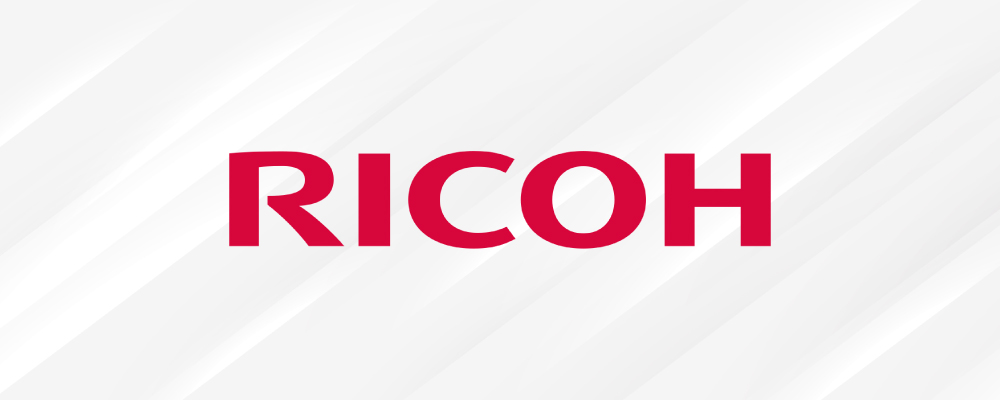Comprehensive renewable electricity evaluation system to improve renewable rates and quality
TOKYO, March 2, 2021 – Ricoh Company, Ltd., has raised its renewable electricity target to 50% by FY2030, up from the previous target of 30%. The Group has also set an interim target of 30% by March 2023, accelerating its renewable electricity transition by eight years. In conjunction with the start of its 20th Mid-Term Management Plan, which runs for two years from April 2021, Ricoh will add the interim renewable electricity target to its ESG targets.
Overseas, Ricoh aims to use 100% renewable electricity at all major sites by FY2030. At its domestic sites, it will also introduce its own comprehensive renewable electricity evaluation system to improve the rate and ensure the quality of renewable electricity. In Japan, Ricoh will convert 100% of the electricity used at its Head Office (Ota-ku, Tokyo) to renewable electricity starting in fiscal 2021 (CO2 reduction effect: 2,000 tons/year; Renewable- electricity: 4.3 GWh/year).
The new comprehensive evaluation system for renewable electricity is based on Ricoh Group’s definition of a sustainable society that achieves the right balance between the three Ps: sustainable economy (Prosperity), sustainable society (People), and sustainable environment (Planet). Based on the Three Ps Balance, the evaluation system assesses whether a power plant has additional new power source development potential, has a lower environmental impact, and is a local community-owned. In the future, sites in Japan that procure renewable electricity will use this system to select their electricity suppliers.
Overseas, Ricoh will increase the quality and quantity of renewable electricity sourced, such as by converting 100% of the electricity used by Ricoh Thermal Media (Wuxi), Co., Ltd., a thermal media production base in China, to renewable electricity from FY2021 (a CO2 reduction effect of approximately 6,500 tons/year and 10.5 GWh/year of renewable electricity). Through these domestic and international initiatives, Ricoh will pursue its efforts for the sustainable recovery from the impact of COVID-19.
In April 2017, Ricoh became the first Japanese company to join RE100 – a collaborative group made up of the world’s most influential businesses committed to using 100% renewable electricity. In March 2020, Ricoh updated its environmental targets in light of changes in global trends regarding global warming by revising its GHG (greenhouse gas) reduction target for its own emissions from 30% to 63% in 2030 as compared to 2015. The revised target, which was approved by the Science Based Targets initiative, aligns to the 1.5°C ambition of the Paris Agreement.
Climate change is one of the most pressing environmental issues facing our global society. Ricoh will continue its efforts to create a decarbonized society throughout its entire value chain by actively promoting energy-saving activities and renewable electricity usage within the company as well as encouraging business partners and customers to cooperate.
FY2020 global renewable electricity initiatives including CO2 reduction and renewable electricity consumption:
| CO2 reduction effect | Renewable Electricity Consumption | |
|---|---|---|
| Achieved RE100 at all 22 sales locations in 12 Latin American subsidiaries | Approx. 800 tons/year | 3.0 GWh/year |
| Achieved RE100 in Ricoh China | Approx. 400 tons/year | 0.6 GWh/year |
| Introduced solar panels at Yamanashi Electronics (Thailand) Co., Ltd. production site and started in-house power generation | Approx. 450 tons/year | 0.8 GWh/year |
| At Ricoh U.K. Products Ltd., solar panels were installed | Approx. 400 tons/year CO2 reduction equivalent |
1.6 GWh/year |
Related Information
- In 2018, nine European sales subsidiaries and French production company, Ricoh Industry France S.A.S., switched to 100% renewable electricity for its reuse-recycle operation.
- Summer 2019: All five A3 multifunction machine plants in China, Thailand, and Japan switched to renewable electricity.
- October 2019: Ricoh U.K. Products Ltd., a manufacturing and business development site in the U.K., switched to renewable electricity.
- In November 2019, PPA was introduced to Ricoh Thermal Media (Wuxi) Co., Ltd., a Chinese manufacturing company, and about 20% of usage was converted to renewable electricity.
- Between 2019 and 2020, five Ricoh Japan sales locations received “ZEB* Ready” certification or higher due to energy conservation and introduction of solar power generation and storage devices.
- *
- Abbreviation of Net Zero Energy Building. Buildings that consume a significant amount of energy per year.
“ZEB” (100% or more reduction), “Nearly ZEB” (75% or more reduction), and “ZEB Ready” (50% or more reduction) are the energy conservation standards.
- April 2020: Ricoh Environmental Business Development Center (Gotemba City, Shizuoka Prefecture) achieved RE100
- July 2020: Ricoh Manufacturing (China) Ltd., a new production site in China, began factory operations using 100% renewable electricity.
(Compared with the former two Shenzhen factories, electricity consumption has been reduced by 70% or more, and 10% of the total power has been supplied by in-house power generation.)
News release in PDF format
| About Ricoh |
Ricoh is empowering digital workplaces using innovative technologies and services enabling individuals to work smarter. For more than 80 years, Ricoh has been driving innovation and is a leading provider of document management solutions, IT services, communications services, commercial and industrial printing, digital cameras, and industrial systems.
Headquartered in Tokyo, Ricoh Group operates in approximately 200 countries and regions. In the financial year ended March 2020, Ricoh Group had worldwide sales of 2,008 billion yen (approx. 18.5 billion USD).
For further information, please visit www.ricoh.com
SOURCE Ricoh


Leave A Comment
You must be logged in to post a comment.